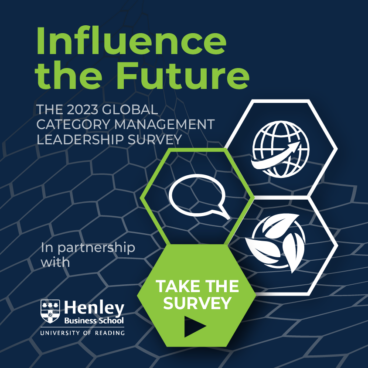
Podcast
The Future Of Category Management | Jon Hughes
In episode 5 of our 5-part podcast series on category management in procurement, Jon Hughes and Mark Webb talk about the business case and business value deliverable that comes from working with third party suppliers and the value that still remains to be unlocked.
By Mark Webb |

Jon Hughes
Profile
35 years international business experience specialising in procurement change management.
Previous employment:
General Motors, British Steel, NWRMC, Co-Founder & Chairman of ADR Purchasing Consultants, Innovation Director for QP Group.
Education:
BA (Hons) and MA in Organisational Psychology, Cambridge University.
CIPS Fellow and holder of their Swinbank Award for Procurement Innovation.
Former Visiting Fellow at Birmingham University and the Vlerick Leuven Business School.
Role in FP: Chairman
Mark Webb, Managing Director, talks to Jon Hughes
In episode 5 of our 5-part podcast series on category management in procurement, Jon Hughes and Mark Webb talk about the business case and business value deliverable that comes from working with third party suppliers and the value that still remains to be unlocked.
Transcript
00:00:00:00 – 00:00:22:05
Jon Hughes
Why not go down the sell routes? But why not be really radical and ask those people what they want? What do you want from suppliers? What do you want from procurement? I think it was just almost revolutionary stuff where you’re saying, look, until you’ve heard any senior manager communicate to you what really matters, don’t assume that you know.
00:00:22:06 – 00:00:40:14
Jon Hughes
Yeah. Unless you’ve heard them say it, so that you can then link on to it and aligned with it, don’t ever make that assumption. It was just amazing and I think the experiential piece to get procurement people, again, it’s not just creating a source plan. You can have the best analytical source plan in the world but can you present it? Can you sell it? Can you get people excited by it? Can you get people to be, you know, really, have a wow factor with it?
And again, I think when you look at the evolution of some of the best procurement functions across the planet, some of those people become very, very good indeed, almost brand ambassadors for procurement aren’t they.
They often become quite sophisticated, I’m mean the nature of the presentations, the way in which they’ve devised the procurement processes, the names that they’ve given them, the way that they’ve drawn on other concepts and ideas in the organization. It’s actually moved procurement from the transactional back office thing into something that, you know, people go, Wow, I didn’t know that was procurement. That is really exciting. It’s almost got a sexy quality to it.
That’s taken a long time because that is mindset, it’s psychology, it’s interpersonal skills, It’s behaviour, it’s presentations, it’s communication. It sounds easy, but as you and I know it’s a hell of a difficult thing to move an organization, to move a lot of people in the organization, so they’ve got those skill sets that, you know, just basically hit the button in the right way.
And it swings 180 degrees, doesn’t it, from hard analytical tools, absolutely vital into soft cluster of things which to do with engagement, massive change. And, you know, I’m sure I could still run experiential workshops where 59 minutes to go they’d still be panicking.
00:02:01:24 – 00:02:03:09
Mark Webb
I’m absolutely sure you could. Before we wrap up.
Just just thinking about the future, any any sort of thoughts about where this type of approach maybe in ten or 15 years time from now?
00:02:13:24 – 00:02:41:02
Jon Hughes
I think there’s probably three areas aren’t there, I think the massive strides being made in data, in data capture, data analysis, artificial intelligence, algorithmic work. You know, I think procurement by it’s very nature, particularly in complex, multi-locational organizations, there’s a massive amount of data there. And I don’t think the power of a data analytics has been harnessed in any shape or form.
We’ve really got to look at what’s now happening as we’re moving from an era of globalization potentially, unfortunately, into, I would say, de-globalization. But we’re taking a backward step. So understanding market trends, understanding, you know, fundamentals and supply and demand, working out where shortages are, working out all the various pressure points in pricing and supply. I think data analysis analytics to be absolutely massive.
I think a second one is clearly the whole technology space, particularly I think in terms of communication and the building of communities through technology. Again, I can only go back to 1985. We had a fax machine and that was just seen as revolutionary, we were dealing with clients in in Australia. You come in the morning, there’ll be a mile of fax paper. You know, your first job in the morning was cutting the fax paper up to find out what to come in overnight.
So I think technology as an absolute prime enabler remain an absolute massive one. And that I still think the third one remains the whole area of supplier management in its various forms. And I don’t mean tactical supplier management. I think what we used to call transformational breakthrough thinking with suppliers, I still genuinely believe that there are many, many, many barriers for organizations working properly with a supply base. I think supplier management is still one of the huge sources of value that hasn’t yet been properly tapped.
00:04:04:00 – 00:04:26:25
Mark Webb
Know, definitely. And that cross crossover between the suppliers and the particular categories. And seeing that way, those two things can work together. I think most organizations still struggle with that and they’ve got one group of people still working from a supply management perspective, not as closely bolted in as they could be to the category perspective and value dropping between those two groups. Really. So yeah, it’s still a massive opportunity area for sure.
00:04:30:21 – 00:04:54:05
Jon Hughes
Well, I think that’s right. It doesn’t really matter what the sector is. I mean, if we’re working in the pharmaceutical sector, we’ve seen the amazing innovations in the last 18 months with COVID vaccines and the colossal work done by third party suppliers, particularly in the university academic sector.
So we know that the supply of absolute breakthrough innovation in, let’s say, pharmaceuticals, third party supply, absolutely colossal. I think in FMC, the whole innovation piece, getting that innovation, being first to market with it, being the preferred customer for major suppliers. Again, there’s still a huge amount of work to be done there.
If you look at the public sector, we’ve got this whole piece now to do with in the UK, build back better and localization and powerhouses around the UK, the social value and social benefits of procurement. You know, that’s in the public sector, I don’t think it matters what sector you look at, it could be high margin, low margin, it could be high tech, low tech. There is a profound business case and business value deliverable that comes from working with third party suppliers in the right way. And I think for anyone who’s working in procurement category management, it’s understanding and unlocking that puzzle, that challenge.
I was doing it for 35 years. Unfortunately Mark you’re starting to move into the same type of decade, but I mean that will go on for the next ten, 10, 20, 30, 40, 50 years. I still think that there are very deep pools of value still waiting to be unlocked. I think it’s one of the reasons why management consultancies in procurement can remain very successful. There’s still a lot of value out.
00:06:04:06 – 00:06:10:21
Mark Webb
Let’s hope so, John. It’s been fantastic. Thank you very much for giving us your time and insights it has been really, really useful, thank you. 00:06:10:21 – 00:06:11:15
Jon Hughes
Pleasure.
Further listening
Podcast episode one: Re-Thinking Procurement in 2023
Podcast episode two: Re-Organising Procurement using category management
Podcast episode three: Embedding Category Management and the Future
Podcast episode four: The Challenges in Making Category Management Stick

About Mark Webb
Managing Director
30+ years procurement experience in line management
and consulting roles.
Previous employment: Price Waterhouse, Mobil Oil and QP Group
Education: BSc in Management Science and MSc in Business by Research, Aston University
CIPS: Member



